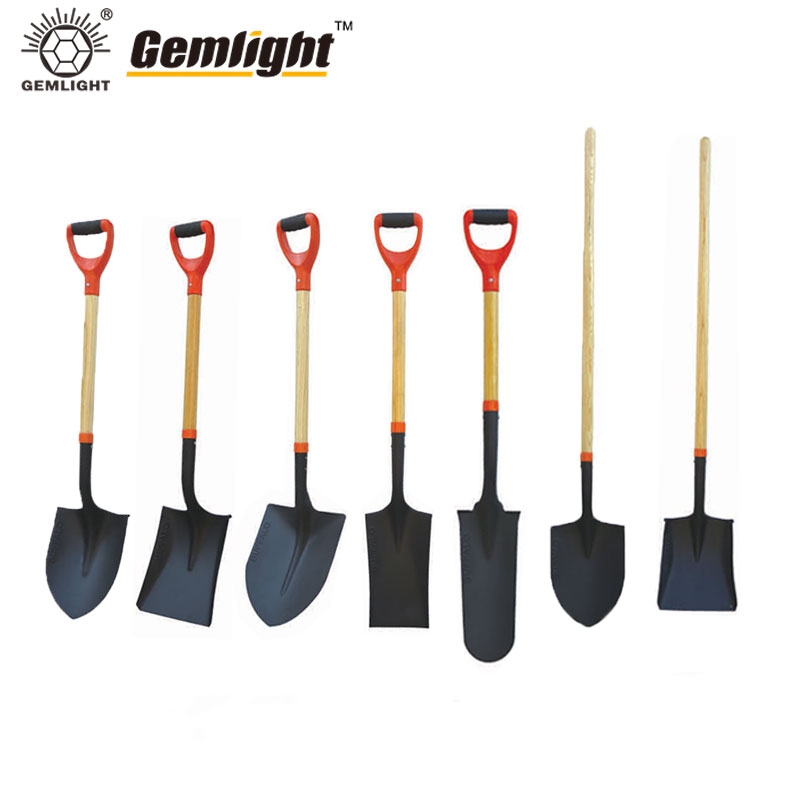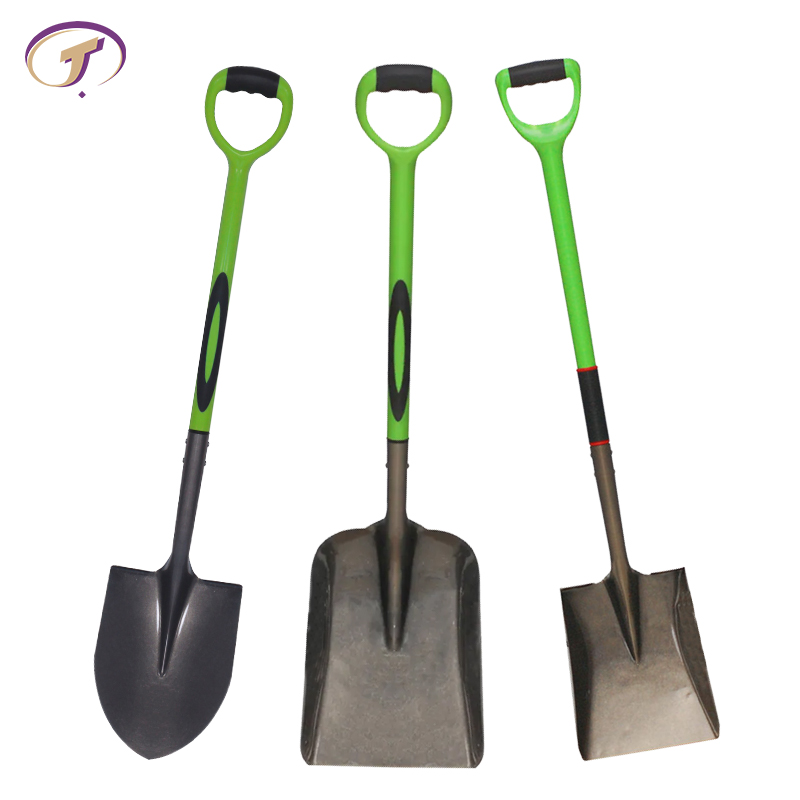News
In African agriculture and landscaping, selecting the right spade garden tool is more than just a matter of preference—it's about productivity and durability. Across various regions of Africa, the soil composition varies significantly: East Africa is known for its red volcanic soil, Central Africa features black clay soils, and many parts of West Africa deal with lateritic or sandy loam soils. A well-suited spade garden tool must perform effectively in these diverse conditions.
For compact clay soils commonly found in Nigeria or Cameroon, a sharp-edged, narrow-pointed spade is more efficient for cutting through tough ground. In contrast, sandy or loamy soils like those in Kenya or Tanzania are better served with broader, flat-headed garden spades for smooth digging and turning. The design of the blade plays a significant role—square-shaped heads are ideal for edging and moving loose material, while rounded tips perform better in tougher terrains.
Furthermore, the functionality of a garden shovel in Africa extends to various farming and horticultural tasks. From planting maize, cassava, and plantain to building irrigation ditches or compost beds, the spade garden tool is indispensable. It is not only a digging implement but a core component of sustainable land use and food production systems across the continent.
For both smallholder farmers and municipal landscaping teams, the ability to work longer hours with a tool that resists wear, handles moisture, and withstands heat is critical. That’s why choosing the right spade is not just about shape—it's also about the strength of the steel, the balance of the tool, and the comfort of the handle for prolonged use under the African sun.

Choosing a garden spade that meets the practical needs of both rural farmers and urban users requires understanding usage frequency, task type, and ergonomic considerations. For those working in rural areas, such as farming cooperatives or subsistence growers, the spade must be highly durable, easy to repair, and able to handle repetitive use under rugged conditions. In these settings, long-handled shovels with reinforced steel heads are preferred to reduce back strain and improve leverage when working on uneven fields.
Urban landscapers, on the other hand, may prioritize compactness and precision. Garden spades used in city environments—such as parks, estates, and public gardens—should offer more control and maneuverability. Shorter handles and lighter blades are more suitable for these scenarios, especially when the task involves transplanting plants, cutting garden edges, or loosening flower beds.
Material selection is another critical aspect. Wooden handles, particularly hardwoods, are popular due to their natural grip and cost-effectiveness, but they may be prone to cracking under humid or rainy conditions. Fiberglass and steel handles are gaining popularity in Africa's urban zones for their superior durability, although they can add weight and cost. Blade material should ideally be high-carbon steel or heat-treated manganese steel, with an anti-rust coating for longevity in tropical climates.
Moreover, comfort features such as D-grip handles or anti-slip rubber finishes are important for reducing hand fatigue during prolonged work. Weight distribution is also key—an unbalanced spade can lead to reduced efficiency and increase the risk of injury. Whether used for tilling, trenching, or transport of soil, selecting the right garden spade enhances productivity and protects the user from unnecessary strain.

As the African market becomes more sophisticated, so do the buyers’ expectations when it comes to garden spades for sale. Whether customers are purchasing through a local hardware distributor, agricultural fair, or online B2B platform, there are several key factors they should evaluate before buying.
First, blade strength and construction matter significantly. Forged spade blades, often made from tempered or carbon steel, tend to last longer and perform better than stamped or rolled alternatives. In countries with heavy-duty needs—like sugarcane farmers in Zambia or cocoa growers in Ghana—buyers should look for spades rated for industrial or farm-grade use. Welded blades must have clean joints, and full-tang designs (where the blade extends into the handle) are generally more durable.
Second, the quality of the handle-to-blade connection is crucial. Spades with riveted or socket-welded joints offer stronger resistance against loosening over time. In markets where repair parts are scarce, such details can mean the difference between months and years of tool life.
Third, resistance to environmental exposure is important. Garden shovels used in coastal regions or rainy equatorial zones must have rust-resistant coatings or galvanization to prevent deterioration. Powder coating or black oxide finishes are often preferred in these conditions.
Finally, potential buyers should consider the credibility of the supplier and the availability of customization. African wholesalers, agricultural cooperatives, and NGOs sourcing tools for distribution often prefer factories that offer OEM/ODM services, local language labeling, and affordable minimum order quantities (MOQs). Clear communication, packaging standards, and responsive after-sales service are becoming vital in the decision-making process.
With rising demand across West, East, and Southern Africa, having access to dependable garden spades for sale is more than a necessity—it’s a business advantage.

At our factory, we specialize in manufacturing spade garden tools engineered specifically for demanding African environments. Our product line is designed with insights from years of collaboration with clients in Kenya, Nigeria, Ghana, Uganda, and beyond. Each spade we produce is built to deliver optimal performance across both agricultural and landscaping applications.
Our flagship garden spade features a forged carbon steel blade with a heat-treated edge for maximum durability. It comes with a hardwood or fiberglass handle option, tailored for either ergonomic balance or enhanced impact resistance. For rural farming cooperatives, we offer long-handled spade garden tools with reinforced sockets, ideal for digging furrows or compost pits. For urban maintenance teams, we supply compact D-grip garden spades, designed for precise trimming and urban planting tasks.
We also provide customization options to match specific project or distributor needs. This includes blade thickness adjustments, logo engraving, and packaging design. Whether you require painted finishes, black oxide treatment, or powder coatings to resist corrosion, our team can deliver. Additionally, all our products meet export standards and are tested for structural integrity before shipment.
For buyers seeking garden spades for sale in bulk, we support flexible MOQ terms and competitive pricing, especially for long-term partners and NGOs involved in agricultural development programs. Our logistics system ensures timely delivery to major African ports, and we offer multilingual customer service to simplify communication and support.
Choosing our factory means partnering with a team that understands African soil, African crops, and African field work. We are more than a supplier—we are your strategic ally in building sustainable farming and landscaping systems across the continent.

 Sitemap
Sitemap